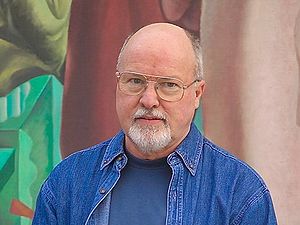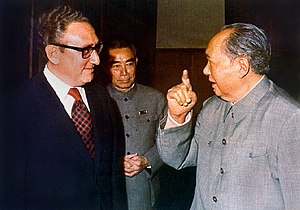Th
ere is an interesting review of Henry Kissinger’s new book, On China, in this past week’s edition of Newsweek, entitled, “Dr. K’s RX for China.” (Accessed 5/31/2011) (NYT’s Book Review)
A comment made by the review out of Kissinger’s book is that the leadership in China has many millennia of history and experience to draw from when sociological, political, military, and economic decisions are made and strategic plans are developed for dealing with interior and exterior issues and problems. Whereas, the U.S. has only a couple hundred years of such experience – barely a ripple.
If there were to be real conflict between the U.S. and China (which, sadly, almost seems inevitable), I suspect that in the long run the winner will be those for whom exists a deep well of wisdom and patience born of hundreds of centuries and who actually pay attention to it – they will probably prevail. It is not simply that China has such an overwhelming population three times that of the U.S., but that they way they think and the patience that is realized will provide for them, well. Of course, there is also negatives with this way of thinking, being, and acting.
This is the case for anyone or any nation that is patient and has a clear understanding of where it has been, where it now is, what it is, and where it is going.
This is why, IMHO, the enduring Christian Church with two thousands years of history and experience behind it and informing those who will listen will far outlast the trendy Christian Church of the last one hundred years, and more particularly since the 1960’s. Even now, statistics suggest this to be the case. Again, this does not mean that the Church does not or should not engage in change, but that which endures is what is reliable.











 The late Dwight Eisenhower, a five-star general and the 34th president of the United States, was once asked who he believed to be the greatest man he’d ever met.
The late Dwight Eisenhower, a five-star general and the 34th president of the United States, was once asked who he believed to be the greatest man he’d ever met. 